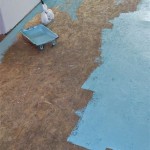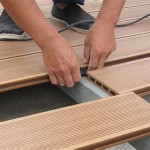What Floor Tiles Can Be Used Outside?
Selecting the right floor tiles for outdoor spaces is a crucial decision for homeowners and designers aiming to create aesthetically pleasing and functional exterior environments. Unlike interior tiles, outdoor tiles must withstand a range of environmental stressors, including fluctuating temperatures, moisture exposure, and direct sunlight. Therefore, careful consideration must be given to factors like durability, slip resistance, and aesthetic appeal. This article provides a comprehensive overview of the types of floor tiles suitable for outdoor use, highlighting their key features and benefits.
Porcelain Tiles: A Top Choice for Outdoor Spaces
Porcelain tiles are widely regarded as one of the best options for outdoor flooring due to their inherent strength, low water absorption, and resistance to frost. These tiles are manufactured by firing clay at extremely high temperatures, resulting in a dense and durable material capable of withstanding harsh environmental conditions. The density of porcelain limits water absorption, making them resistant to cracking and damage from freezing temperatures, a significant advantage in climates with cold winters.
One of the key benefits of porcelain tiles is their versatility. They are available in a wide array of styles, colors, and textures, allowing for seamless integration with various design aesthetics. Porcelain tiles can mimic the appearance of natural stone, wood, or concrete, providing the desired look without the maintenance requirements associated with these materials. Furthermore, porcelain tiles are naturally stain-resistant and easy to clean, making them a practical choice for high-traffic outdoor areas.
When selecting porcelain tiles for outdoor use, it is essential to consider the tile's PEI (Porcelain Enamel Institute) rating. The PEI rating indicates the tile's resistance to abrasion and surface wear. For outdoor applications, a PEI rating of 3 or higher is generally recommended to ensure the tile can withstand foot traffic and weather exposure. Additionally, look for tiles labeled as "frost-resistant" or "frost-proof," indicating they have been specifically tested and proven to withstand freezing temperatures without cracking.
Texturing is another important consideration. Opting for textured or slip-resistant porcelain tiles is crucial for creating a safe outdoor surface, particularly in areas prone to moisture or wet conditions. These textures increase traction and minimize the risk of slips and falls, making them ideal for patios, pool decks, and walkways.
Installation of porcelain tiles outdoors requires proper preparation and the use of appropriate materials. A stable and well-draining sub-base is essential to prevent shifting and cracking. Using a high-quality outdoor-rated thin-set mortar is also crucial to ensure a strong bond between the tiles and the sub-base. Grout joints should be sealed with a waterproof sealant to prevent water penetration and protect the tiles from damage.
Natural Stone Tiles: Timeless Elegance and Durability
Natural stone tiles, such as slate, granite, and travertine, offer a timeless and elegant aesthetic for outdoor spaces. These materials are prized for their natural beauty, unique textures, and inherent durability. However, not all types of natural stone are equally suitable for outdoor use, and careful consideration must be given to their specific properties and maintenance requirements.
Slate is a popular choice for outdoor flooring due to its naturally slip-resistant surface and resistance to weathering. Its distinctive layered appearance and earthy tones add a touch of rustic charm to patios, walkways, and garden paths. Slate is generally resistant to staining and fading, but it may require periodic sealing to protect it from moisture and prevent the growth of mold or mildew. The dark color can also absorb heat, making it less comfortable to walk on in direct sunlight.
Granite is another excellent choice for outdoor tiles, known for its exceptional hardness and resistance to scratches, stains, and heat. Its durability makes it suitable for high-traffic areas, such as driveways and entryways. Granite is available in a wide range of colors and patterns, allowing for diverse design options. Like slate, granite may benefit from periodic sealing to maintain its appearance and protect it from the elements.
Travertine is a sedimentary rock characterized by its porous surface and warm, earthy tones. It is often used to create luxurious outdoor spaces, such as pool decks and patios. However, travertine is more porous than slate or granite, making it more susceptible to staining and water damage. Sealing travertine is essential to protect it from moisture and prevent the formation of unsightly stains. In colder climates, travertine may be prone to cracking if not properly sealed and maintained. The porous nature and tendency to absorb heat can also make it less comfortable underfoot in direct sunlight.
When installing natural stone tiles outdoors, it is crucial to use a suitable mortar and grout designed for exterior applications. A well-draining sub-base is also essential to prevent water accumulation and potential damage. Regular cleaning and maintenance, including sealing and occasional pressure washing, are necessary to keep natural stone tiles looking their best.
Concrete Tiles: Versatile and Modern
Concrete tiles offer a versatile and modern option for outdoor flooring, providing a durable and aesthetically pleasing surface. These tiles are manufactured by mixing cement, aggregates, and pigments, allowing for a wide range of colors, textures, and patterns. Concrete tiles can be customized to mimic the appearance of natural stone, brick, or even wood, offering a cost-effective alternative to these materials.
One of the key advantages of concrete tiles is their strength and durability. They are capable of withstanding heavy loads and resisting damage from weathering and foot traffic. Concrete tiles are also naturally slip-resistant, making them a safe choice for outdoor areas. However, they can be susceptible to staining and cracking if not properly sealed and maintained.
Sealing concrete tiles is crucial to protect them from moisture, stains, and freeze-thaw damage. A high-quality concrete sealant will penetrate the surface of the tile and create a protective barrier against water and contaminants. The sealant should be reapplied periodically, depending on the level of exposure and traffic. It's important to note that some sealants can alter the color and texture of the concrete, so testing the sealant on a small, inconspicuous area is recommended before applying it to the entire surface.
Concrete tiles are relatively easy to install, but proper preparation is essential. A stable and well-draining sub-base is necessary to prevent cracking and shifting. Using a polymer-modified thin-set mortar designed for exterior applications will ensure a strong bond between the tiles and the sub-base. Grout joints should be sealed with a waterproof sealant to prevent water penetration and protect the tiles from damage. Regular cleaning with a mild detergent and water will help to keep concrete tiles looking their best.
Concrete pavers are a specific type of concrete tile often used for creating patios, walkways, and driveways. They are typically thicker and more durable than standard concrete tiles, making them well-suited for heavy-duty applications. Concrete pavers are available in a wide range of sizes, shapes, and colors, allowing for creative and customizable designs. They are also relatively easy to install, often interlocking to create a stable and attractive surface.
When selecting concrete tiles for outdoor use, it is important to consider the climate. In regions with freezing temperatures, it is essential to choose concrete tiles that are specifically designed to withstand freeze-thaw cycles. These tiles are manufactured with a higher density and lower water absorption rate, reducing the risk of cracking and damage. Proper drainage is also crucial to prevent water from accumulating on the surface of the tiles and causing damage.
In summary, selecting the appropriate floor tiles for outdoor use necessitates a thorough understanding of the materials' properties and their suitability for specific environmental conditions. While porcelain tiles offer exceptional durability and versatility, natural stone tiles provide timeless elegance, and concrete tiles deliver a modern aesthetic. By carefully considering factors such as durability, slip resistance, water absorption, and maintenance requirements, homeowners and designers can create outdoor spaces that are both beautiful and functional.

The Complete Guide To Choosing Best Outdoor Tile

The Best Tiles For Outdoor Use

Outdoor Terracotta Tile Designs Country Floors

Can Porcelain Floor Tiles Be Used Outside Rialto Porcelanato

Outdoor Porcelain Tiles And Floor

Outdoor Flooring Over Grass Or Dirt Interlocking Tiles

Outdoor Non Slip Patio Tiles Comparing Rubber Stone Plastic

Outdoor Porcelain Tiles 8 Stunning Designs Stiled Com

Outside Tiles How To Transform Your Garden Hyperion

Patio Floor Tiles What You Should Know La Tuilerie
Related Posts








